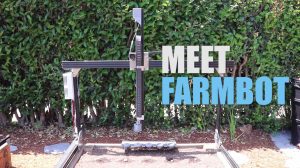
The growth of the human population has always been centered on a civilization’s ability to cultivate crops. Regardless of the Malthusian or the Cornucopian perspective, the trend between the agricultural revolution and the growth of the human population directly parallels technological growth. In terms of sustainable systems most of the world is still in developmental stages today, giving us high hopes for the future. Michael Carolan in his book The Real Cost of Cheap Food puts forth a stern position of how the global food system operates. The origin of the “cheap foods” concept according to Carolan emerged out of a wave known as the Agricultural Revolution. The advent of globalization has set in motion specific economic, social, cultural and political interests geared towards industrializing agriculture. This dynamic can be measured in understandable terms, by breaking down systems into their individual components. The term commodity chain deals with the economic trail in terms of their production and circulation. It is evident that water is vital to crop production, and companies looking to the future will be trying to spread irrigation systems to more remote undeveloped areas. Irrigation makes it easier to secure crop production and the rationality behind it is fundamental to development. Economic evolution is critical to achieving a developed world. Earth’s water is spread out all over the planet; the ability to pump water from deep surfaces can solve agricultural issues. The general trend will be to maximize the capability of food markets across the globe by increasing efficiency on all levels. This made me think about a company that created a product known as “FarmBot”; a robot system that grows crops for you and that can be solar-powered. It is amazing to think of what is possible with agricultural technology; the future could potentially solve a lot of the world’s hunger issues. The challenge to achieving this new level of technological integration on a global scale is in making it accessible to all.

I really enjoyed reading about the Farmbot concept and the marvels of modern technology. Michael Carolan makes a compelling argument about the distinction between cheap food and inexpensive food, speaking in a relatively broader sense of affordability where affordable food provides the capability of individuals to escape poverty and starvation. I realized you mentioned how an economic revolution is required to change conditions as seen presently, however it is important to consider the fact that globalisms and free markets can be damaging for developing country. By examining poor developing countries, Carolan points out that developing countries can reduce rural poverty by increasing productivity through modern agricultural methods such as genetic engineering, but smallholder farmers face issues with being unable to compete in the global markets against billion dollar farming industries. While cheap food in theory can decrease the amount of labor needed, reduce food prices, and increase food security, and has instead done more harm than good towards poor developing nations. I see globalisms and technology as a tool that can bring about a lot of good particularly in food security, but relying solely on the market mechanics to solve human problems has unintended consequences that follow.